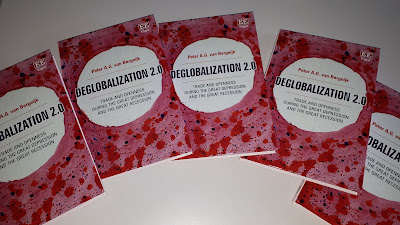Financial deglobalization?
The sharp and persistent decline of international capital flows in its aftermath has been interpreted by some observers as proof of financial ’deglobalization’, reflected in particular in a generalized contraction of cross-border bank lending in response to regulatory and other policy changes (Forbes (2014), Rose and Wieladek (2014), Van Rijckeghem and Weder di Mauro (2014), Forbes et al. (2017)). However, other papers argue that such view is not supported by more appropriate measures of banking globalization, such as the interconnectedness of the banking network (Cerutti and Zhou (2017)), or nationality-based (as opposed to location-based) measures of cross-border banking activity (McCauley et al. (2017)). Our factor model framework allows us to shed light on this debate, as the aforementioned exposure of cross-border flows to common shocks provides a natural measure of the overall degree of financial globalization. Fernandez Lafuerza, Luis Gonzalo, and Luis Servén. "Swept by t




